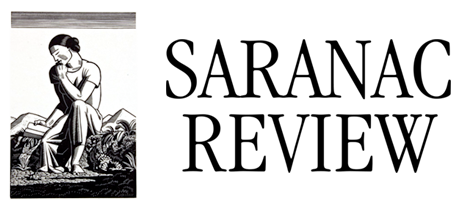
A ghazal is always within reach of pain
Annie Stenzel
Poetry
Evidence in one spot on the right ankle. Ancient souvenir of trip, fall, gash, then heal
but leaving three scars that linger decades after the ragged wounds healed.
Two hardworking parents, five children, hundreds of raucous, squabbling meals.
Loaf after loaf of bread your mother baked. Luckily, you were content with the heel.
At this stage of the messy proceedings known as a life, scars and afflictions accrue
in impressive numbers. When the asteroid strikes, there’s a crater that won’t heal.
You limp along a trail that angles up and down, fraught with limbs and roots.
Do you hike in tall boots? And they fit, but five miles in, here’s a blister on your heel.
Oh no, says the heart! A pang, a twinge of memory quick to overwhelm with tears
that say sorrow, leak grief, wail woe. Trigger endless, unsuccessful efforts to heal.
The news from a much-loved cousin stops you cold, quick salt geysering: It’s cancer.
Rare. Fast-growing. Two major organs affected, and a lymph node, too. He’ll
know more in a few days, crisscrossing the city to see an array of experts, but
even they can’t say more than few recover from this mixture. Some heal
and return to their lives, their hikes, their many loves, a family and its sweet histories.
Others don’t. Too many won’t. Being alive is a wound that won’t heal.
Annie Stenzel (she/her) was born in Illinois, but did not stay put. Her full-length collection is The First Home Air After Absence (Big Table Publishing, 2017). Her poems appear or are forthcoming in print and online journals in the U.S. and the U.K., from Ambit to UCity Review, with stops at Atlanta Review, Chestnut Review, FERAL, Galway Review, K’in Literary Review, Lily Poetry Review, On the Seawall, Rust + Moth, SWWIM, Thimble, Third Wednesday, and Verse Daily, among others. Her second collection was a finalist for the Washington Prize at The Word Works. A poetry editor for the online journals Right Hand Pointing and West Trestle Review, she lives on unceded Ohlone land within walking distance of the San Francisco Bay, and pays a voluntary monthly land tax to help restore Indigenous life.

